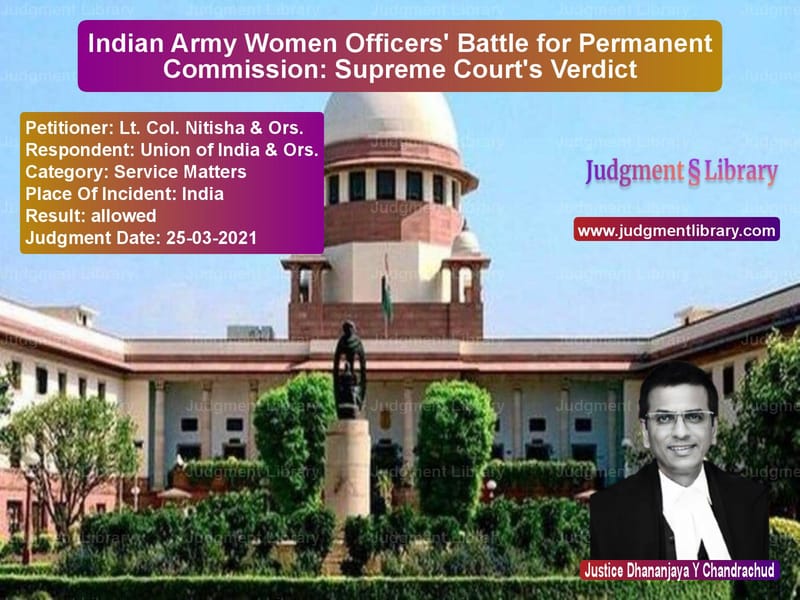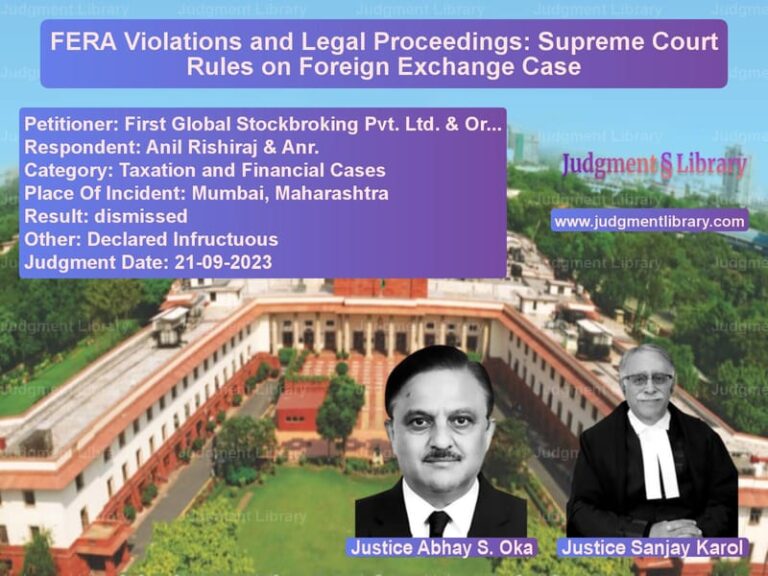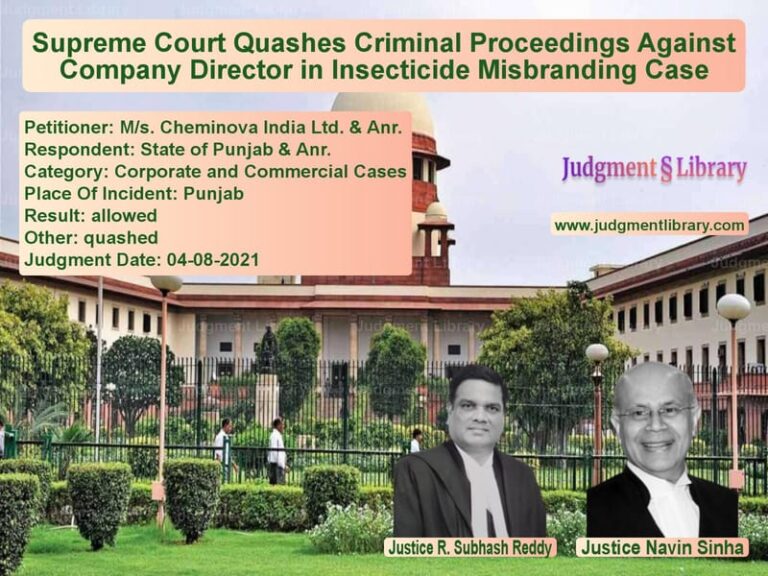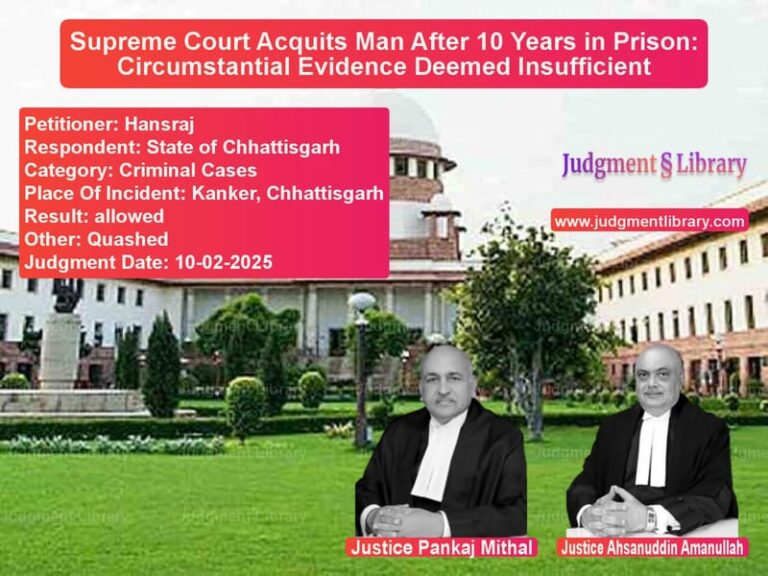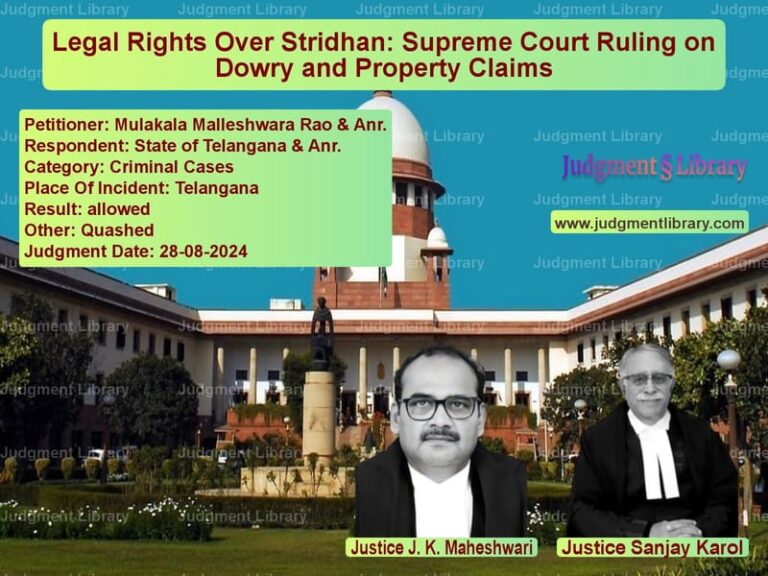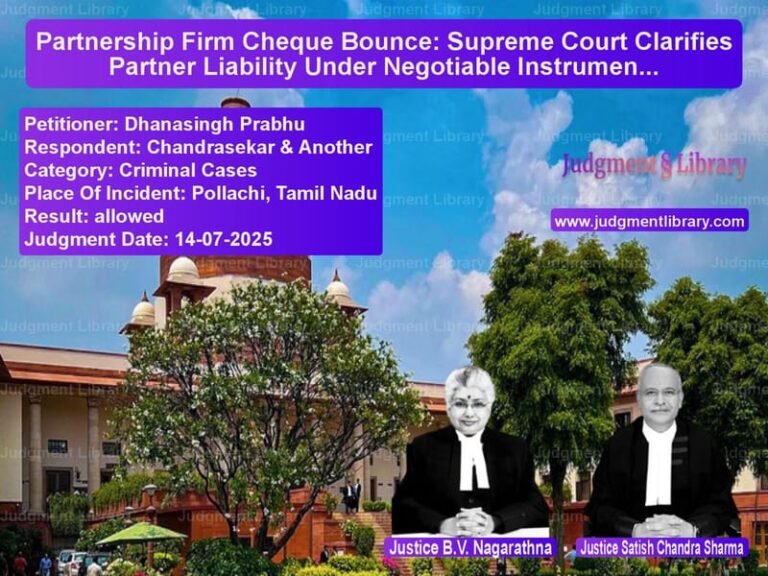Indian Army Women Officers’ Battle for Permanent Commission: Supreme Court’s Verdict
The fight for gender equality in the Indian Armed Forces took a historic turn with the Supreme Court’s ruling in the case of Lt. Col. Nitisha & Ors. vs. Union of India & Ors.. This case revolved around the implementation of the court’s previous decision in Babita Puniya, which had paved the way for granting Permanent Commission (PC) to women Short Service Commissioned Officers (WSSCOs). However, the manner in which this decision was implemented by the Indian Army was challenged, leading to this fresh litigation.
The Supreme Court delved deep into the challenges faced by women officers in the Army, addressing systemic discrimination and indirect biases that had been built over the years. It evaluated whether the selection process for granting PC to WSSCOs was conducted fairly and in line with constitutional principles of equality.
The Journey Towards Equality
The case had its roots in the Supreme Court’s 2020 judgment in Secretary, Ministry of Defence v. Babita Puniya, where the court unequivocally ruled that women SSC officers were entitled to PC at par with their male counterparts. This decision was expected to be a landmark moment for gender justice in the Armed Forces.
However, despite the Supreme Court’s ruling, the manner in which the Army implemented the decision led to another legal battle. Women officers alleged that the criteria used for granting PC were arbitrary and unjust. The petitioners contended that the Indian Army was using discriminatory practices in evaluating their service records, medical fitness, and overall eligibility for PC.
Key Issues Raised
1. Benchmarking with Male Officers
The Army had set a benchmark that required women officers to match the lowest-ranked male officer granted PC in their corresponding batch. The petitioners argued that this was unfair as they had been systematically denied career enhancement opportunities, making it an unequal comparison.
2. Reliance on Old Annual Confidential Reports (ACRs)
The Supreme Court found that the Army had unfairly frozen the assessment of women officers based on their ACRs from the 5th or 10th year of service, without considering their later achievements and contributions. This was especially unjust since male officers’ latest ACRs were taken into account.
3. Stringent Medical Criteria
The Supreme Court scrutinized the Army’s insistence on applying the SHAPE-1 medical classification to women officers, even when they were considered for PC years after their male counterparts. It was noted that many male officers, once granted PC, were allowed to continue in service even if they no longer met SHAPE-1 standards.
Supreme Court’s Observations
The Supreme Court, in its analysis, recognized that the Army’s method of implementing PC for women officers was flawed and discriminatory. It ruled that:
- The benchmarking against male officers was unjustified and must be removed.
- The latest ACRs of women officers must be taken into account.
- Women officers who had met the medical criteria when they should have originally been granted PC should not be disqualified based on subsequent medical assessments.
The judgment emphasized the principle of substantive equality rather than mere formal equality, acknowledging that systemic discrimination had placed women officers at a disadvantage for decades.
Impact of the Judgment
This ruling is a significant step toward ensuring gender justice in the Indian Armed Forces. By striking down arbitrary selection criteria and addressing systemic biases, the Supreme Court has reinforced that the Indian Constitution does not tolerate gender-based discrimination.
Women officers in the Indian Army can now hope for a fairer future, where their contributions are recognized without bias. This case serves as a reminder that equality is not just about treating everyone the same but ensuring that systemic barriers do not continue to hold certain groups back.
With this judgment, the Indian Armed Forces take another step toward fostering an inclusive and equitable environment, where talent and dedication—not gender—determine one’s career progression.
Petitioner Name: Lt. Col. Nitisha & Ors..Respondent Name: Union of India & Ors..Judgment By: Justice Dhananjaya Y Chandrachud.Place Of Incident: India.Judgment Date: 25-03-2021.
Don’t miss out on the full details! Download the complete judgment in PDF format below and gain valuable insights instantly!
Download Judgment: lt.-col.-nitisha-&-o-vs-union-of-india-&-ors-supreme-court-of-india-judgment-dated-25-03-2021.pdf
Directly Download Judgment: Directly download this Judgment
See all petitions in Employment Disputes
See all petitions in Promotion Cases
See all petitions in Transfers Cases
See all petitions in Disciplinary Proceedings
See all petitions in Public Sector Employees
See all petitions in Judgment by Dhananjaya Y Chandrachud
See all petitions in allowed
See all petitions in supreme court of India judgments March 2021
See all petitions in 2021 judgments
See all posts in Service Matters Category
See all allowed petitions in Service Matters Category
See all Dismissed petitions in Service Matters Category
See all partially allowed petitions in Service Matters Category

